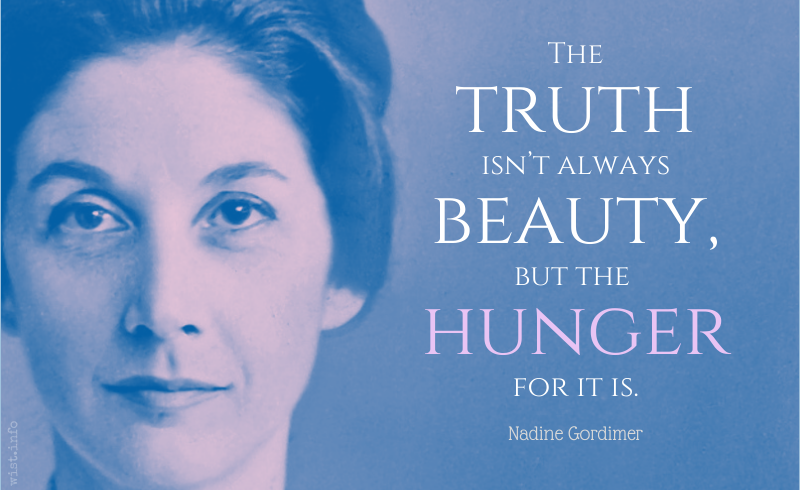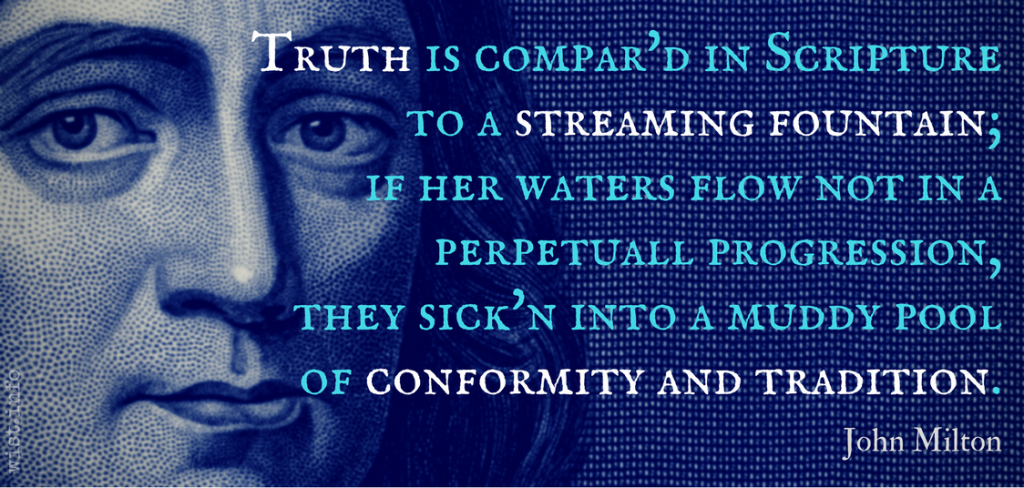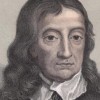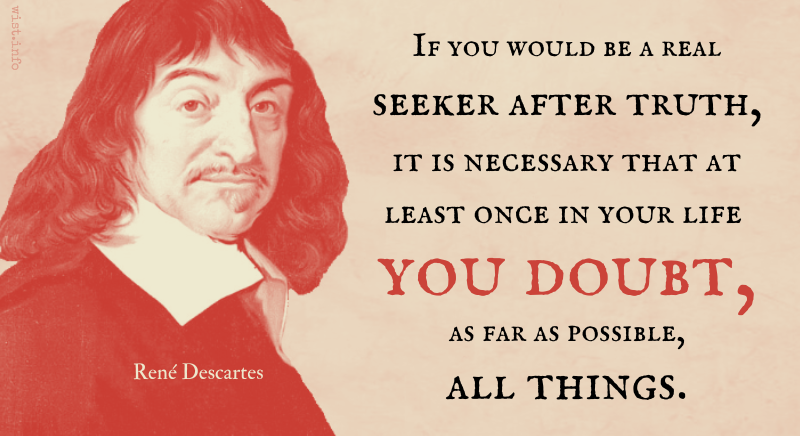There are very few human beings who receive the truth, complete and staggering, by instant illumination. Most of them acquire it fragment by fragment, on a small scale, by successive developments, cellularly, like a laborious mosaic.
Quotations about:
truth-seeking
Note not all quotations have been tagged, so Search may find additional quotes on this topic.
We must try to keep the mind in tranquility. For just as the eye which constantly shifts its gaze, now turning to the right or to the left, now incessantly peering up and down, cannot see distinctly what lies before it, but the sight must be fixed firmly on the object in view if one would make his vision of it clear, so too man’s mind when distracted by his countless worldly cares cannot focus itself distinctly on the truth.
Basil of Caesarea (AD 330-378) Christian bishop, theologian, monasticist, Doctor of the Church [Saint Basil the Great, Ἅγιος Βασίλειος ὁ Μέγας]
Letter to Gregory of Nazianzus (c. AD 358) [tr. Defarrari (1926)]
(Source)
Of course one does meet brilliant men, but they are isolated. The fashion nowadays is all for groups and societies of every sort. — It is always a sign of mediocrity in people when they herd together, whether their group loyalty is to Solovyev or to Kant or Marx. The truth is only sought by individuals, and they break with those who do not love it enough.
Boris Pasternak (1890-1960) Russian poet, novelist, and literary translator
Doctor Zhivago [До́ктор Жива́го], Part 1, ch. 1 “The Five-O’Clock Express,” sec. 4 [Nikolai Nikolaievich] (1955) [tr. Hayward & Harari (1958), UK ed.]
(Source)
Alternate translations:Yes, there are gifted men, but the fashion nowadays is all for groups and societies of every sort. Gregariousness is always the refuge of mediocrities, whether they swear by Solovyiëv or Kant or Marx. Only individuals seek the truth, and they shun those whose sole concern is not the truth.
[tr. Hayward & Harari (1958), US ed.]You come across talented people. But now various circles and associations are the fashion. Every herd is a refuge for giftlessness, whether it's a faith in Soloviev, or Kant, or Marx. Only the solitary seek the truth, and they break with all those who don't love it sufficiently.
[tr. Pevear & Volokhonsky (2010)]
No desire is more natural than the desire for knowledge. We assay all the means that can lead us to it. When reason fails us we make use of experience. Experience is a weaker and less dignified means: but truth is so great a matter that we must not disdain any method that leads us to it.
[Il n’est desir plus naturel que le desir de cognoissance. Nous essayons tous les moyens qui nous y peuvent mener. Quand la raison nous faut, nous y employons l’experience. Qui est un moyen de beaucoup plus foible et plus vil. Mais la verité est chose si grande, que nous ne devons desdaigner aucune entremise qui nous y conduise.]
Michel de Montaigne (1533-1592) French essayist
Essays, Book 3, ch. 13 “On Experience [De l’Experience]” (1588) (3.13) (1595) [tr. Screech (1987)]
(Source)
Aristotle's Metaphysics opens with the phrase "All men by nature desire knowledge."
The 1595 edition included a quotation from Manilius inserted after the word "experience" (omitted here). It also added the second descriptor (after "weaker") of how experience compares to reason.
(Source (French)). Alternate translations:There is no desire more naturall, then that of knowledge. We attempt all meanes that may bring us unto it. When reason failes us, we employ experience. Which is a meane by much more, weake and vile. But trueth is of so great consequence, that wee ought not disdaine any induction, that may bring us unto it.
[tr. Florio (1603)]There is no Desire more natural than that of Knowledge: We try all Ways that can lead us to it; where Reason is wanting, we therein employ Experience which is a Means much more weak and cheap. But Truth is so great a thing, that we ought not to disdain any Mediation that will guide us to it.
[tr. Cotton (1686)]There is no desire more natural than that of knowledge. We try all ways that can lead us to it; where reason is wanting, we therein employ experience which is a means much more weak and cheap; but truth is so great a thing, that we ought not to disdain any mediation that will guide us to it.
[tr. Cotton/Hazlitt (1877)]There is no desire more natural than the desire for knowledge. We make trial of all means that can lead us to it. When reasoning fails us, we then make use of experience, which is a much feebler and lower means; but truth is so great a thing that we must not disdain any medium that leads us to it.
[tr. Ives (1925)]There is no desire more natural than the desire for knowledge. We try all the ways that can lead us to it. When reason fails us, we use experience, which is a weaker and less dignified means. But truth is so great a thing that we must not disdain any medium that will lead us to it.
[tr. Frame (1943)]
They taught me, not by precept, but by example, that nothing is more commendable, and more fair, than that a man should lay aside all else, and seek truth; not to preach what he might find; and surely not to try to make his views prevail; but, like Lessing, to find his satisfaction in the search itself.
Learned Hand (1872-1961) American jurist
“On Receiving an Honorary Degree,” speech, Harvard University (1939-06-22)
(Source)
Collected in The Spirit of Liberty (1953).
The presence of those seeking the truth is infinitely to be preferred to the presence of those who think they’ve found it.
Above all, the search after truth and its eager pursuit are peculiar to man. And so, when we have leisure from the demands of business cares, we are eager to see, to hear, to learn something new, and we esteem a desire to know the secrets or wonders of creation as indispensable to a happy life. Thus we come to understand that what is true, simple, and genuine appeals most strongly to a man’s nature.
[In primisque hominis est propria veri inquisitio atque investigatio. Itaque cum sumus necessariis negotiis curisque vacui, tum avemus aliquid videre, audire, addiscere cognitionemque rerum aut occultarum aut admirabilium ad beate vivendum necessarian! ducimus. Ex quo intellegitur, quod verum, simplex sincerumque sit, id esse naturae hominis aptissimum.]
Marcus Tullius Cicero (106-43 BC) Roman orator, statesman, philosopher
De Officiis [On Duties; On Moral Duty; The Offices], Book 1, ch. 4 (1.4) / sec. 13 (44 BC) [tr. Miller (1913)]
(Source)
Original Latin. Alt. trans.:But of all the properties and inclinations of men, there is none more natural and peculiar to them than an earnest desire and search after truth. Hence it is that our minds are no sooner free from the thoughts and engagements of necessary business, but we presently long to be either seeing, or hearing, or learning of something; and esteem the knowledge of things secret and wonderful as a necessary ingredient of a happy life. Whence it appears that nothing is more agreeable and suited to the nature and minds of men than undisguised openness, truth, and sincerity.
[tr. Cockman (1699)]The desire and investigation of truth is proper to man. When disengaged from necessary business and cares, we are eager to add to our knowledge by examining for ourselves or listening to others. The discovery of what is secret or wonderful, we are disposed to conceive essential to happiness. Hence, what is true, simple, and undisguised, is best adapted to human nature.
[tr. McCartney (1798)]Before all other things, man is distinguished by his pursuit and investigation of TRUTH. And hence, when free from needful business and cares, we delight to see, to hear, and to communicate, and consider a knowledge of many admirable and abstruse things necessary to the good conduct and happiness of our lives: whence it is clear that whatsoever is TRUE, simple, and direct, the same is most congenial to our nature as men.
[In John Frederick William Herschel, A Preliminary Discourse on the Study of Natural Philosophy, Epigraph (1830)]The distinguishing property of man is to search for and to follow after truth. Therefore, when relaxed from our necessary cares and concerns, we then covet to see, to hear, and to learn somewhat; and we esteem knowledge of things either obscure or wonderful to be the indispensable means of living happily. From this we understand that truth, simplicity, and candour, are most agreeable to the nature of mankind.
[tr. Edmonds (1865)]The research and investigation of truth, also, are a special property of man. Thus, when we are free from necessary occupations, we want to see, or hear, or learn something, and regard the knowledge of things either secret or wonderful as essential to our living happily and well.
[tr. Peabody (1883)]The distinctive faculty of man is his eager desire to investigate the truth. Thus, when free from pressing duties and cares, we are eager to see or hear, or learn something new, and we think our happiness is incomplete unless we study the mysteries and the marvels of the universe.
[tr. Gardiner (1899)]The first duty of man is the seeking after and the investigation of truth.
[ed. Harbottle (1906)Inquiry into and searching for truth are primary characteristics of mankind. So when we are free from business obligations and other preoccupations, we become eager to see something new, to hear and learn something; we begin to think that knowledge about the mysteries and wonders of the world is necessary to a happy life.
[tr. Edinger (1974)]
Truth is compar’d in Scripture to a streaming fountain; if her waters flow not in a perpetuall progression, they sick’n into a muddy pool of conformity and tradition.
[Truth is compared in Scripture to a streaming fountain; if her waters flow not in a perpetual progression, they sicken into a muddy pool of conformity and tradition.]
The worth of a man does not consist in the truth he possesses, or thinks he possesses, but in the pains he has taken to attain that truth. For his powers are extended not through possession but through the search for truth. In this alone his ever-growing perfection consists.
[Nicht die Wahrheit, in deren Besitz irgend ein Mensch ist, oder zu sein vermeint, sondern die aufrichtige Mühe, die er angewandt hat, hinter die Wahrheit zu kommen, macht den Wert des Menschen. Denn nicht den Besitz, sondern durch die Nachforschung der Wahrheit erweitern sich seine Kräfte, worin allein seine immer wachsende Vollkommenheit bestehet.]
Gotthold Lessing (1729-1781) German playwright, philosopher, dramaturg, writer
Eine Duplik, Part 1 (1778) [tr. Chadwick (1957)]
(Source)
This passage (in the Scott Horton translation below) is given as the epigraph to chapter 19 of Christopher Hitchens, God Is Not Great (2007); this prominence gave it a fair amount of fame. It is identified in Hitchens as being from Lessing's Anti-Goeze tracts (1778), though strictly speaking the passage is actually from Eine Duplik (1778), a different writing by Lessing over the same Fragment Dispute of 1777-1778.
(Source (German)). Alternate translations:It is not the truth that a man possesses, or believes he possesses, but the honest pains he has taken to get at truth, which makes a man's worth; for it is not by the possession of truth, but by the march after it, that his powers are extended, in which alone his perfection consists.
[Source (1884)]The true value of a man is not determined by his possession, supposed or real, of Truth, but rather by his sincere exertion to get to the Truth. It is not possession of the Truth, but rather the pursuit of Truth by which he extends his powers and in which his ever-growing perfectibility is to be found.
[tr. Horton (2007)]
I have seen several entirely sincere people who thought they were (permanent) Seekers after Truth. They sought diligently, persistently, carefully, cautiously, profoundly, with perfect honesty and nicely adjusted judgment — until they believed that without doubt or question they had found the Truth.
That was the end of the search. The man spent the rest of his life hunting up shingles wherewith to protect his Truth from the weather. If he was seeking after political Truth he found it in one or another of the hundred political gospels which govern men in the earth; if he was seeking after the Only True Religion he found it in one or another of the three thousand that are on the market. In any case, when he found the Truth he sought no further; but from that day forth, with his soldering-iron in one hand and his bludgeon in the other he tinkered its leaks and reasoned with objectors.
If you would be a real seeker after truth, it is necessary that at least once in your life you doubt, as far as possible, all things.
[Veritatem inquirenti, semel in vita de omnibus, quantum fieri potest, esse dubitandum.]
René Descartes (1596-1650) French philosopher, mathematician
Principles of Philosophy [Principia Philosophiae], Part 1 “The Principles of Human Knowledge [De Principiis Cognitionis Humane],” Article 1 (1644)
Common, unsourced translation of Descartes first principle. Frequently mis-sourced to Discourse on Method (1637) or Meditations on First Philosophy (1641), though those predecessor works do speak of the same principle.
(Source (Latin)). Alternate translations:That in order to seek truth, it is necessary once in the course of our life, to doubt, as far as possible, of all things.
[tr. Veitch (1850)]That in order to examine into the truth, it is necessary once on one's life to doubt of all things, so far as this is possible.
[tr. Haldane/Ross (1934)]The seeker after truth must, once in the course of his life, doubt everything, as far as possible.
[tr. Miller & Miller (1982)]That whoever is searching after truth must, once in his life, doubt all things; insofar as this is possible.
[tr. Cottingham/Stoothoff/Murdoch (1985)]
Rough work, iconoclasm, but the only way to get at truth.
Oliver Wendell Holmes, Sr. (1809-1894) American poet, essayist, scholar
The Professor at the Breakfast-Table, ch. 5 (1860)
(Source)
The chapter originally appeared as "The Professor at the Breakfast-Table: What He Said, What He Heard, and What He Saw," Atlantic Monthly, (1859-05).

















